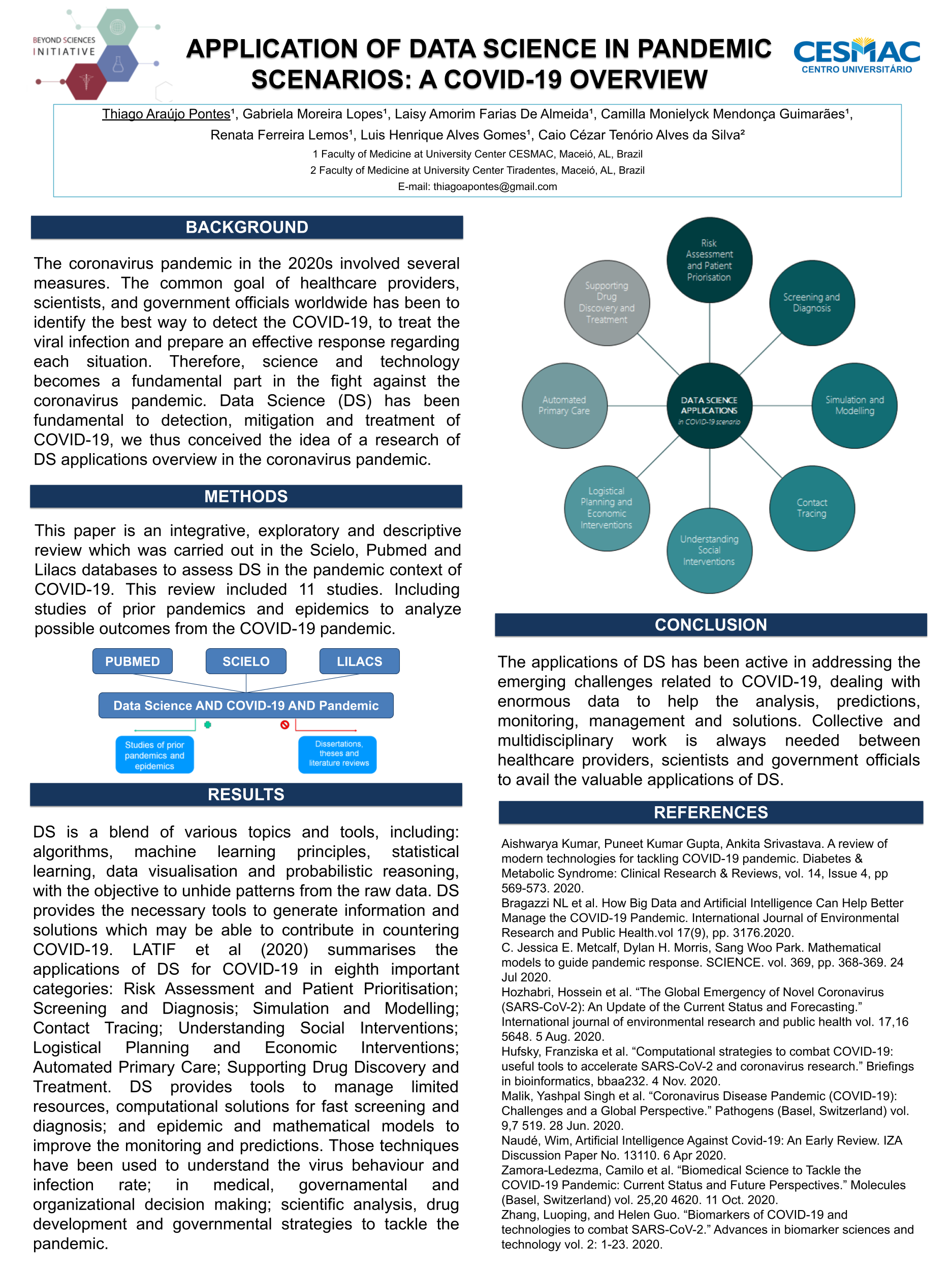Conference 2021 Poster Presentation
Project title
Application Of Data Science In Pandemic Scenarios: A Covid-19 Overview
Authors and Affiliations
Thiago Araújo Pontes1, Gabriela Moreira Lopes1, Laisy Amorim Farias De Almeida1, Camilla Monielyck Mendonça Guimarães1, Renata Ferreira Lemos1, Luis Henrique Alves Gomes1, Caio Cézar Tenório Alves da Silva2
1. Centro Universitário CESMAC
2. Centro Universitário Tiradentes
Abstract
Background
The coronavirus pandemic in the 2020s involved several measures. The common goal of healthcare providers, scientists, and government officials worldwide has been to identify the best way to detect the COVID-19, to treat the viral infection and prepare an effective response regarding each situation. Therefore, science and technology becomes a fundamental part in the fight against the coronavirus pandemic. Data Science (DS) has been fundamental to detection, mitigation and treatment of COVID-19, we thus conceived the idea of a research of DS applications overview in the coronavirus pandemic.
Methods
This paper is an integrative, exploratory and descriptive review which was carried out in the Scielo, Pubmed and Lilacs databases to assess DS in the pandemic context of COVID-19. This review included 11 studies. Including studies of prior pandemics and epidemics to analyze possible outcomes from the COVID-19 pandemic.
Results
DS is a blend of various topics and tools, including: algorithms, machine learning principles, statistical learning, data visualisation and probabilistic reasoning, with the objective to unhide patterns from the raw data. DS provides the necessary tools to generate information and solutions which may be able to contribute in countering COVID-19. LATIF et al (2020) summarises the applications of DS for COVID-19 in eighth important categories: Risk Assessment and Patient Prioritisation; Screening and Diagnosis; Simulation and Modelling; Contact Tracing; Understanding Social Interventions; Logistical Planning and Economic Interventions; Automated Primary Care; Supporting Drug Discovery and Treatment. DS provides tools to manage limited resources, computational solutions for fast screening and diagnosis; and epidemic and mathematical models to improve the monitoring and predictions. Those techniques have been used to understand the virus behaviour and infection rate; in medical, governamental and organizational decision making; scientific analysis, drug development and governmental strategies to tackle the pandemic.
Conclusions
The applications of DS has been active in addressing the emerging challenges related to COVID-19, dealing with enormous data to help the analysis, predictions, monitoring, management and solutions. Collective and multidisciplinary work is always needed between healthcare providers, scientists and government officials to avail the valuable applications of DS.

